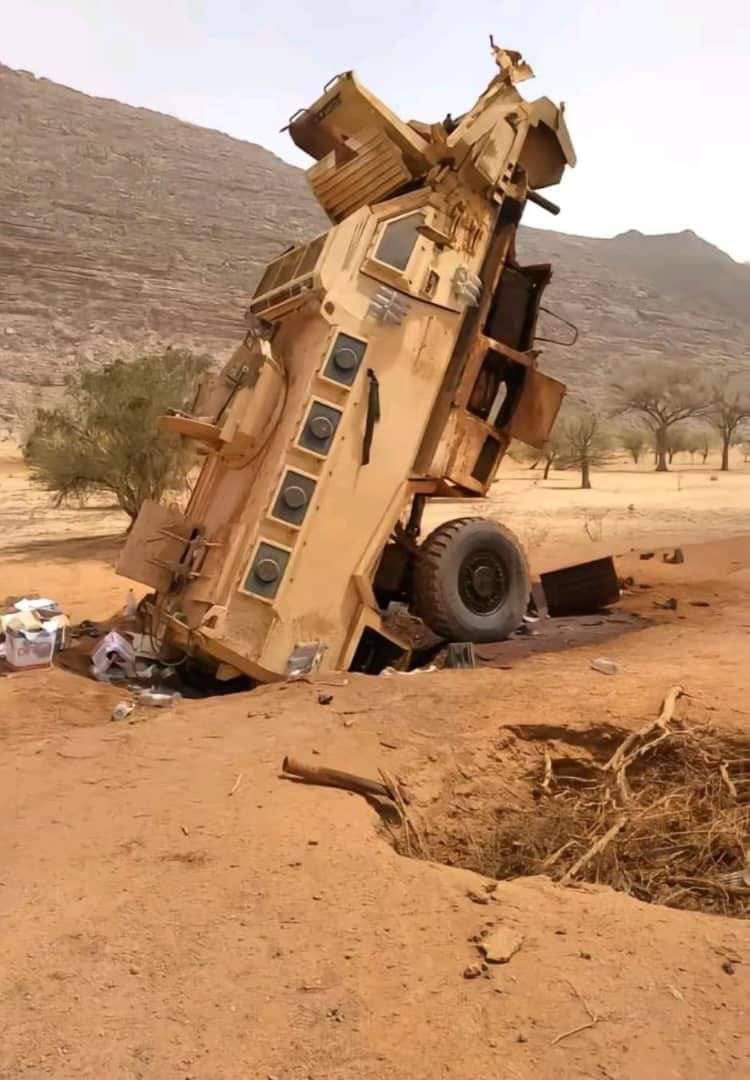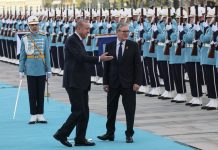Russia has once again accused Ukraine of escalating tensions on the African continent, claiming that Kyiv’s alleged support for militant groups in Mali and Niger constitutes a “second front” in the ongoing conflict with Moscow.
Igor Gromyko, Russia’s Ambassador to Mali and Niger, told TASS that Ukraine’s involvement in African conflicts is a direct response to its failure on the battlefield against Russian forces.
The accusations of Ukraine supporting “terrorism” in Africa are not new. Back in August, Russia had already charged Ukraine with opening a “second front” in Africa.
Mali and Niger, both governed by military regimes that came to power through recent coups, have pivoted toward Russia for military support, turning away from their previous defense ties with France.
The ambassador stated, “Unable to defeat Russia on the battlefield, Vladimir Zelensky’s regime has decided to open a ‘second front’ in Africa, supporting illegal armed formations aimed against Moscow-friendly states on the continent.”
His remarks follow a series of diplomatic fallout between Ukraine and several African nations, which accuse Kyiv of creating instability in the region. The tensions escalated when Mali’s transitional government announced in August that it was severing diplomatic ties with Ukraine.
The decision was reportedly triggered by comments from Ukrainian officials, including Andrey Yusov, Ukraine’s Main Directorate of Intelligence spokesperson, and Yury Pivovarov, Ukraine’s Ambassador to Senegal.
These Ukrainian officials claimed at the time that Kyiv had assisted the militants responsible for the attack on Malian troops in the northern region of the country in late July.
The Russian ambassador added, “We understand the motives that led the Malians to cut ties with Kyiv. The fact that it cooperates with terrorists is unsurprising. In our country, it continues to employ prohibited methods – committing sabotage, political assassinations, and regularly shelling civilian infrastructure.”
On the other hand, Ukraine has already rejected these accusations, calling the decision by Mali and Niger to sever ties “short-sighted” and “hasty.”
Ukrainian officials have vehemently denied any involvement in supporting international terrorism and insisted that they are committed to regional stability and peace.
Russia In West Africa
Moscow has increasingly positioned itself as a major force in Africa, with its influence growing significantly between 2021 and 2023. This rise is largely attributed to a series of highly effective diplomatic strategies and disinformation campaigns that allowed Russia to make major inroads into the continent.
Russia’s actions contributed to the removal of the presidents of Mali, Burkina Faso, and Niger, the rise of pro-Russian military governments, and the collapse of a decade-long French-led counterterrorism initiative in the region.
Unlike European countries, burdened by regulations on human rights and arms exports, Russia has shown the ability to act quickly and without hesitation.
According to a senior West African official, Russia can quickly deliver supplies without the bureaucratic delays that typically slow down European countries. This capability has made Moscow an attractive partner for several Sahelian nations, especially in times of crisis.
Russia’s Wagner Group’s successor, the Africa Corps, operates in several countries, with an estimated 1,000 personnel in Mali, around 100 in Burkina Faso, an unclear number in Niger and Sudan, and approximately 2,000 in the Central African Republic (CAR).
These forces contribute to Russia’s economic interests, such as gold smuggling and arms deals, while allowing Moscow to disrupt regional dynamics at a low cost.
However, the situation took a dramatic turn in late July when a coordinated attack by Tuareg separatists, reportedly supported by Ukrainian intelligence, killed more than 80 Russian Africa Corps fighters and 47 Malian soldiers at Tinzaouten on the Algeria border. Moscow and Bamako responded by indiscriminately bombing parts of northern Mali.

However, following the ambush, a photo emerged showing Tuareg fighters holding a Ukrainian flag. This prompted accusations that Ukraine had supported the assault.
Ukrainian officials confirmed the image’s authenticity, stating that they support any group opposing the Russian Group in Africa. This led to a major backlash from neighboring African nations, particularly Niger.
On August 4, Mali announced the severing of relations with Ukraine. After this, Senegal summoned Ukraine’s ambassador to its Foreign Ministry, and Burkina Faso also issued a strong condemnation of Ukraine’s actions. On August 6, Niger joined the wave of criticism, officially cutting diplomatic ties with Kyiv.
While the successful ambush by Tuareg fighters may have slightly embarrassed Russia, experts argue that the loss of a few Wagner mercenaries is unlikely to impact Russia’s broader military operations. In contrast, Ukraine’s actions may harm its relations with African nations, potentially jeopardizing future Western support for its own struggle against Russia.
- Contact the author at ashishmichel(at)gmail.com
- Follow EurAsian Times on Google News




